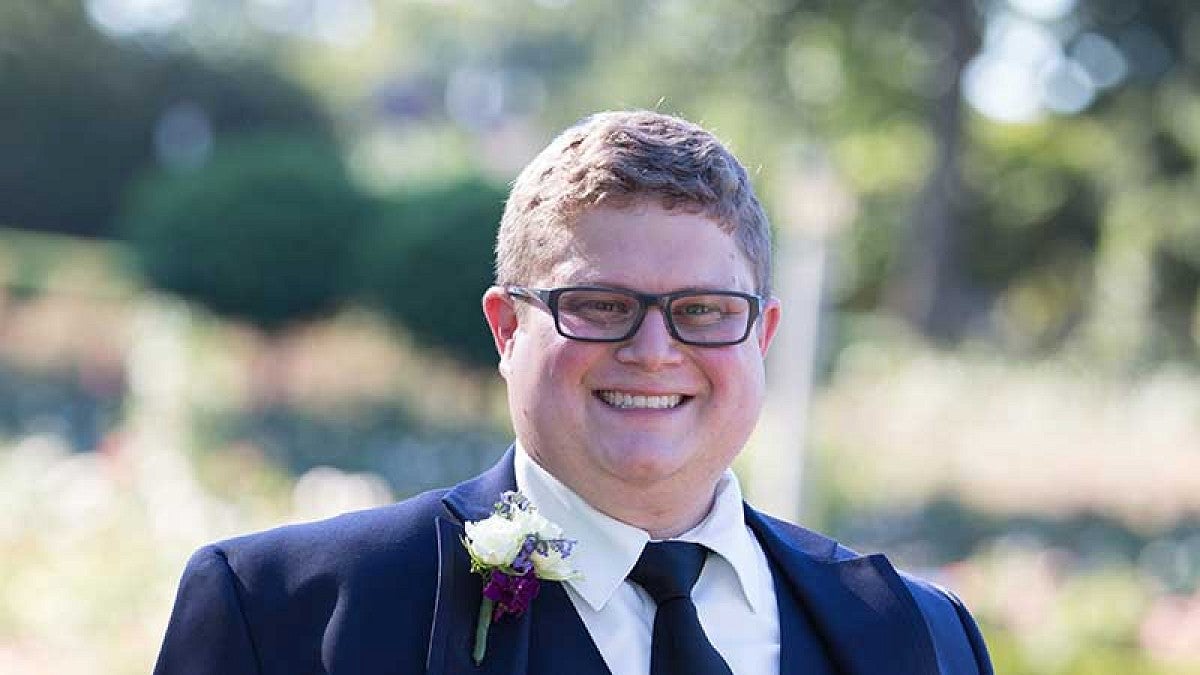Editor’s note: Beyond the Call is a section in Around the O Workplace that highlights the exceptional work of UO employees during COVID-19. Each story features an interview with one employee, in his or her own words, with light editing for clarity and length only.
How long have you worked at the UO?
I've worked for the UO as staff since 2006 and I started in the student worker position in 2003.
Tell us about your work:
I run a set of servers and services that help manage desktops, Windows and Macs. I am also one of the administrators for the virtual desktop infrastructure (VDI). Campus knows it as the campus virtual lab and campus high performance virtual lab. I do all of the configuration of the operating systems as well as the management and monitoring of all of the things inside of those systems. When the computer needs updates, I'm the one sending the computer its updates. When we needed these virtual environments, I created sets of machines and operating systems.
What does your workday look like during COVID-19?
My work has changed significantly. I used to work for the College of Business doing a lot of what I'm doing today but just for the College of Business. When COVID happened, the scope of what I did expanded very quickly. It went from just supporting the College of Business to expanding at the campus level to make it possible for the entire campus to do the online learning that needed to happen.
When it came time for me to get all this done, it was my boss realizing that there was significantly more work than hours in the regular work week. He went to our dean at the College of Business to approve overtime. With the budget the way it is at the UO it was not an easy decision. My work time went from 40 hours a week to about 80 to 90 hours a week of work.
In my new position now, I'm on a team of four and we manage user desktops, servers, machines, updates, and create packages. My typical workday is Monday through Friday 7 a.m. to 4 p.m. When COVID started my work turned into seven days a week. I would work 7 a.m. to 4 p.m., stop from about 4 p.m. until 7 p.m., and then at 7 p.m. when the kids went to bed I would come back to my desk and work from 7 p.m. till about 2 in the morning. I did this for three solid weeks to get everything working.
What is keeping you motivated during this challenging time?
While it was very taxing for me, I definitely can't say enough good things about my wife who also had to work 80 to 90 hours of overtime taking care of the children and things like that. If she wasn't here doing what she does, it wouldn’t have happened from my end. She played a big role in helping that happen for me.
From a really young age it was instilled in me that if you're going to do something you need to do it right and if you're going to put effort into it you need to put 110 percent effort in. It doesn't matter what it is or what you're doing. It's not really worth doing if you're not going to give it everything. Being able to give the best possible experience in the situation we were not ready for was a huge driving factor.
The other part that kept me motivated was if I was still a student, I would want someone out there working hard for me. The university doesn't just exist as a place for work. It exists to help educate and to bring us to the next level. The students are the driving factor, not only for their knowledge but they are also paying tuition. As someone who had to come on scholarships, grants, and financial aid, every decision that we make needs to be in consideration that someone paid to make this happen. That’s important.
Michael Suskin is a part of Information Services.
Do you know someone who has gone beyond the call? Nominate a UO employee.


